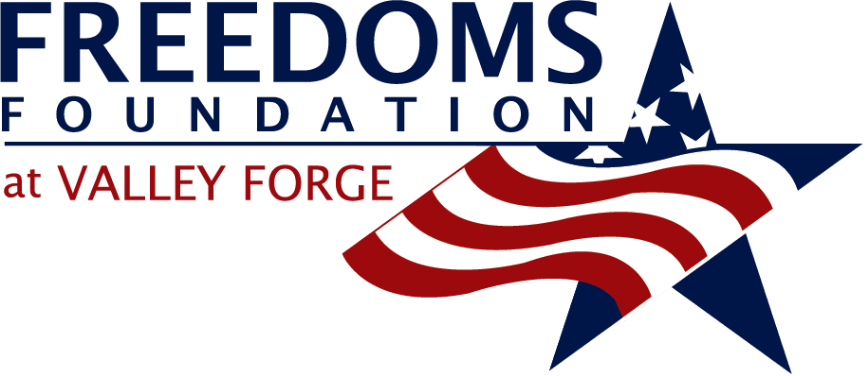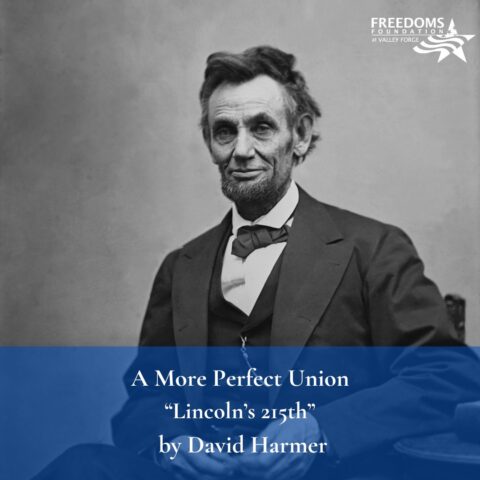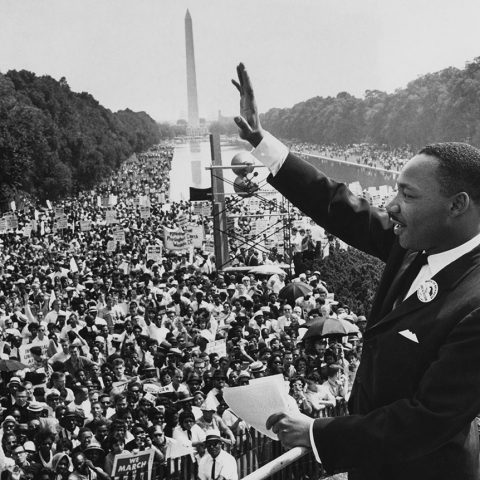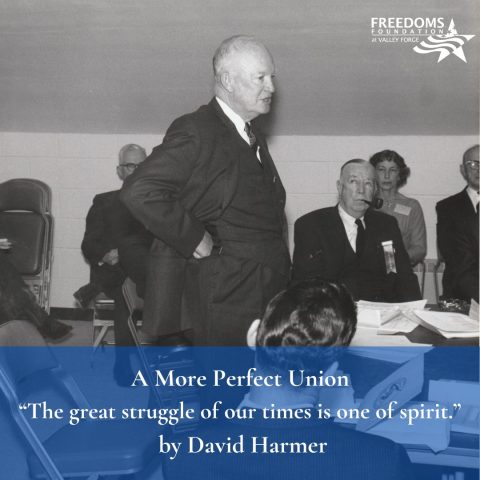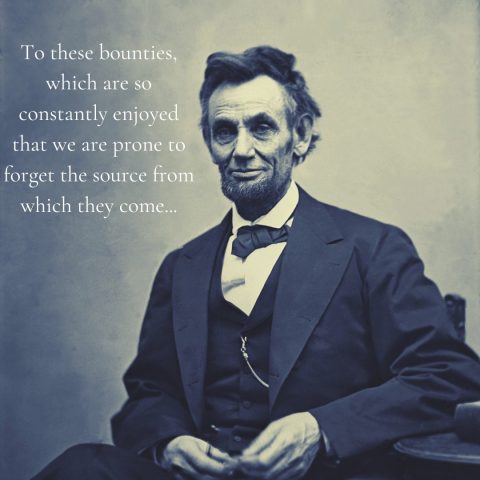Founding Mother Martha Washington

By David Harmer
Among the many blessings of my role is the opportunity to host VIP visitors here at Valley Forge. Whenever their schedules permit, I personally escort them through Valley Forge National Historical Park, which borders our handsome campus. I never tire of telling what the Continental Army endured there, or what General Washington accomplished.
It was on such a visit recently that I took our guests to the Isaac Potts home, which served as General Washington’s headquarters from December 1777 to June 1778. The guide knew his history. He recounted the crushing burdens and overwhelming challenges General Washington faced through that bitter winter. He described in detail many visitors to and occupants of the home: army officers, congressional overseers, bright young aides de camp.
Although engaging and otherwise thorough, the guide’s presentation omitted someone essential. So I asked about Martha Washington’s arrival and subsequent activities.
“Huh,” snorted one tourist. “Probably sewing.” (As if that didn’t matter when the soldiers’ clothes were in tatters.)
The guide was more respectful. He said that Mrs. Washington had buoyed the spirits of the Commander in Chief, managed the household staff, and entertained distinguished visitors. Then he moved on.
What he said was true—but didn’t begin to do justice to Martha Washington’s extraordinary service. There’s so much more to her story. As Thomas Fleming writes:
In an early portrait of Martha, with her sleek dark hair and glowing eyes, one historian has found “cold fire” and a readiness to be awakened by a man like George Washington, who emanated masculinity.
That seems to be what happened. When Washington accepted the command of the army in 1775, he and Martha had been married sixteen years. He wrote to “my dearest” and spoke of “an unalterable affection that neither time nor distance can change.” … One of the more astute observers among the army’s women, Nathanael Greene’s wife, Catherine, told a friend: “Mrs. Washington is extremely fond of the general and he of her; they are very happy in each other.”
Every winter of the war, Martha made the long journey from the comforts of Mount Vernon to the unpredictable arrangements of a winter camp, braving ice-choked rivers and swamped roads. With all he had on his mind, Washington planned and supervised every mile of her trips. It was clear that he wanted her by his side.
No other winter was quite as grim as the one at Valley Forge. Martha found a half-naked army on the verge of mutiny and a camp buried in snow. But she brought with her an indefatigable good cheer and news from Mount Vernon. Soon she was visiting sick soldiers in their huts, braving camp fever and the odors of decaying horses and open latrines.[1]
From its inception, Freedoms Foundation at Valley Forge has recognized and publicized the vital contributions of women to the American founding. Emblematic of that, we revere General Washington, but it is for Martha Washington, his indispensable partner, that our headquarters is named—and has been since its dedication in 1963. Thousands enter its doors each year, many of them pausing to read the adjacent bronze plaque:
Martha Washington, first first lady of the nation, merited personal distinction over and above the honors bestowed upon her as the wife of our first president. Her love of mankind and belief in the dignity of the individual found frequent expression in her daily life.
The gracious hostess of beautiful Mount Vernon left the comforts of her Potomac home to be with her husband, the father of our country, George Washington, at Valley Forge. She arrived by carriage at this hallowed place February 10, 1778 (old calendar), the day before his birthday, after evading British patrols and fording dangerous winter streams on her trip from Virginia to Pennsylvania.
During her stay at Valley Forge, she ministered to the troops during the cold, discouraging winter of 1777-1778. Throughout those direful days, she nursed the sick, fed the hungry, clothed the naked, cheered the homesick, and soothed the malcontent. She was sympathetic to and understanding of her husband’s aspirations to establish a nation of free men.
Martha Washington loved her country and her husband. Her compassion for the soldiery and steadfast faith in the cause of independence sustained George Washington during the dark hours of despair as he labored to insure personal liberty for all Americans.
How fitting that, upon their arrival in Valley Forge, participants in Freedoms Foundation’s patriotic programs, students and teachers alike, are welcomed and registered in a building named for Martha Washington. And how fitting that that same building houses our administrative offices, our annual gala, and the bulk of our behind-the-scenes work.
As Mother’s Day approaches, we remember and honor an all-too-often-unsung hero of the American Revolution: the preeminent Founding Mother, Martha Washington.
[1] Fleming, Thomas J. Washington’s Secret War: the Hidden History of Valley Forge. Smithsonian Books/Collins, 2006, p. 185.
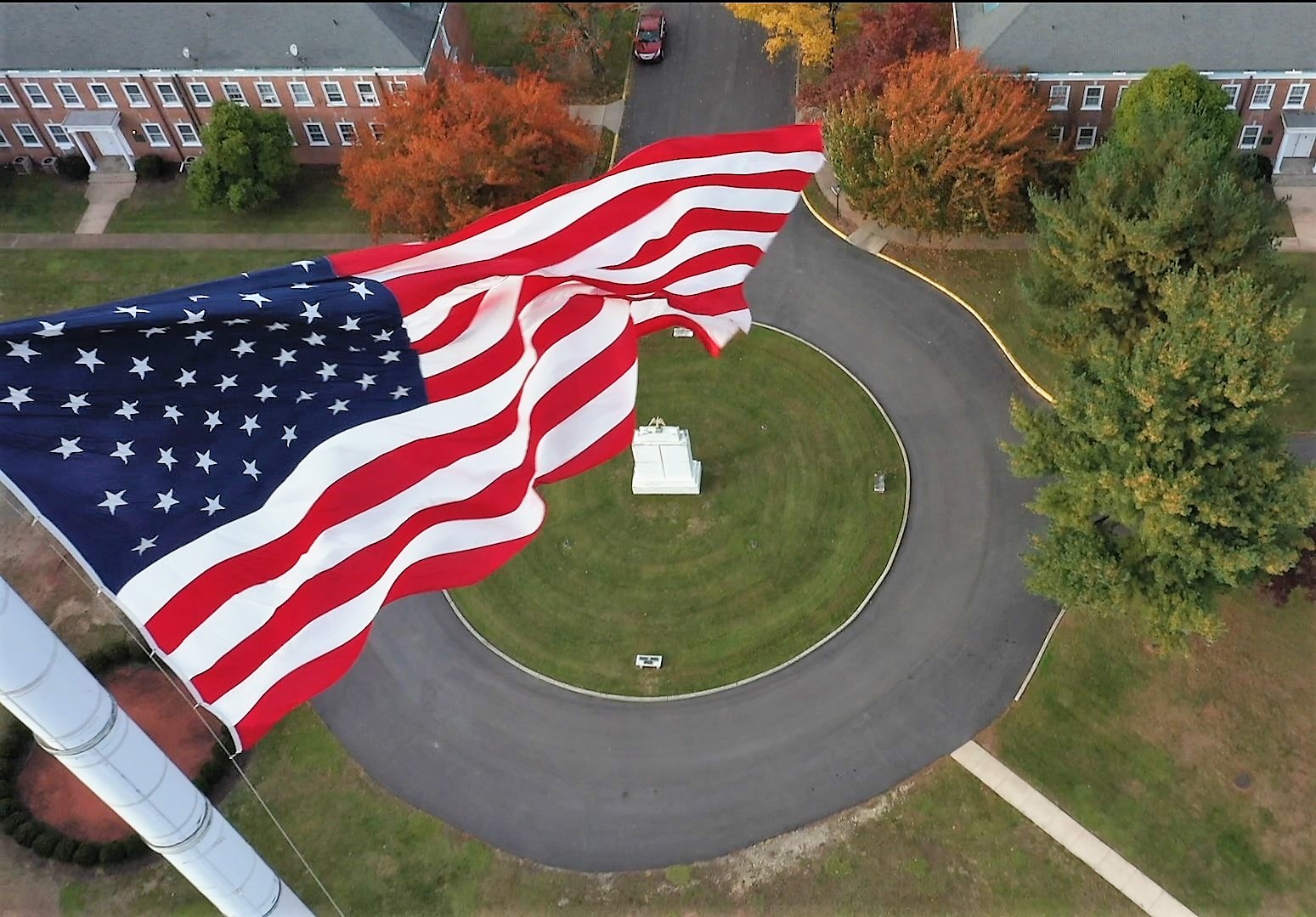
Donate Today
Supporting America’s first principles of freedom is essential to ensure future generations understand and cherish the blessings of liberty. With your donation, we will reach even more young people with the truth of America’s unique past, its promising future, and the liberty for which it stands. Help us prepare the next generation of leaders.
